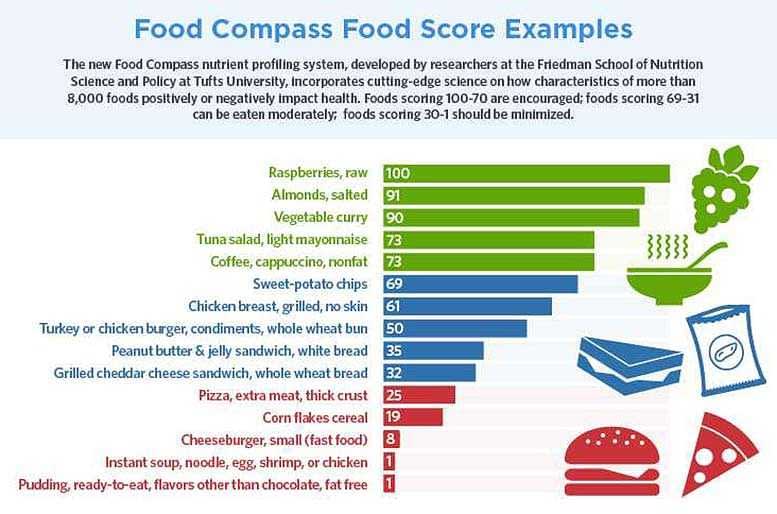Researchers Offer a Different Approach to Rating Foods
A new Food Compass Score (FCS) developed by researchers from Tufts University rates foods on a scale of one to 100 based on their healthiness, with fruits and olive oil receiving high scores. The FCS system takes into account a wide range of nutritional attributes and could potentially influence food choices, dietary guidelines, and agricultural trade policies in the United States.
A new food rating system will allow institutions, producers and consumers in the United States to make healthier diet choices, according to a researcher team from Tufts University.
The researchers said that the results of their study, published in Nature, show the Food Compass Score (FCS) could also improve the quality of existing products, help establish new healthier dietary guidelines and even inform agricultural trade policies.
The nutritional index took three years to develop and rates products from one to 100, the latter being the healthiest score.
See Also:Newly-Proposed Med Index Rating Seeks to Surpass Nutri-Score and NutrinformThe researchers wrote that FCS was developed and tested “using a detailed national database of 8,032 foods and beverages consumed by Americans.”
“It scores 54 different characteristics across nine domains representing different health-relevant aspects of foods, drinks and mixed meals, providing for one of the most comprehensive nutrient profiling systems in the world,” they added.
“The characteristics and domains were selected based on nutritional attributes linked to major chronic diseases, such as obesity, diabetes, cardiovascular problems and cancer, as well as to the risk of undernutrition, especially for mothers, young children and the elderly,” the researchers continued.
Fruits have the highest average scores, of 73.9, with most raw fruits scoring 100. Meanwhile, vegetables receive an average score of 69.1, with similar ratings given to legumes, nuts and seeds.
Among beverages, 100-percent fruit juices score 67 on average, while energy drinks and sugar-sweetened sodas receive a 27.6.
FCS gives a score of 85 to olive oils, making it the healthiest choice for added fats. By comparison, lard receives a 19.

Tufts University
The fact that healthy products, such as olive oil, receive a higher rating compared to other food rating systems – such as Nutri-Score, which gives olive oil the third-highest rating out of five – should not come as a surprise.
According to the researchers, FCS focuses on the nutritional qualities of food and takes its unhealthy attributes into account. This is a slightly different approach compared to other major food rating systems.
In the European Union, food labeling systems such as Nutri-Score tend to focus on potentially harmful characteristics of food such as calories, saturated fat and sodium content.
Contrastly, FCS includes certain micronutrients and phytochemicals that are not always considered by other food rating systems.
Nutrients, food ingredients and how they are processed are scored based on “the latest cutting-edge science,” the researchers wrote, adding that the scores would be regularly updated.
Unlike other food rating systems, the researchers added that FCS can be used to rate mixed dishes “and meals using one consistent score (existing systems subjectively group and score foods differently).”
The researchers used pizza as an example. “In the case of pizza, many other systems have separate scoring algorithms for the wheat, meat and cheese, but not the finished product,” they wrote.
“Consistent scoring of diverse items can also help assess and compare combinations of food and beverages that could be sold and consumed together, such as an entire shopping basket, a person’s daily diet pattern or a portfolio of foods sold by a particular company,” the researchers added.
Dariush Mozaffarian, dean of the Friedman School at Tufts University, said that “once you get beyond ‘eat your veggies, avoid soda,’ the public is pretty confused about how to identify healthier choices in the grocery store, cafeteria, and restaurant.”
Researchers hope that FCS will encourage the food industry to develop healthier food and reformulate the current products. It could also be used as the basis for local and national policies regarding package labeling, taxation and restrictions on marketing to children.
They added that the system could be used nearly everywhere once adopted, including in food shops, restaurants, hospitals and schools.
The science-based FCS also could be used “to inform agricultural trade policy and guide institutional and individual investors on environmental, social and corporate governance investment decisions,” the researchers concluded.









